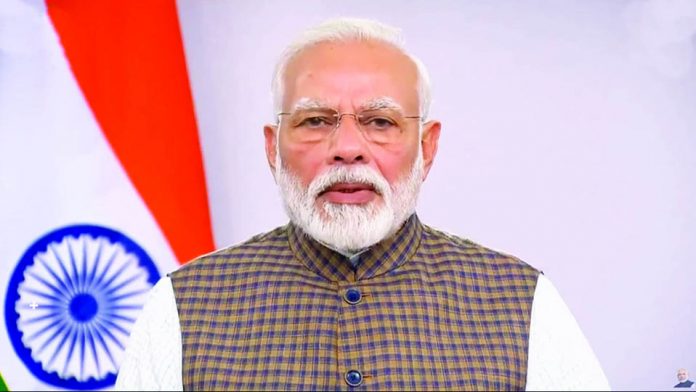Each time the Prime Minister is scheduled to deliver a speech on television, I can sense the panic on social media. Ever since he announced demonitisation, every speech evokes a sense of panic and emojis of people with their hair standing on end has become fairly common. Now, post Covid-19, the panic has increased manifold. Here’s why.
When he made his first announcement on the Janata curfew, all my neighbours came out onto the streets ignoring social distancing rules and acted like it was an open air disco, oblivious to the fact that they were endangering lives. After his second speech, when he recommended downloading the Aarogya Sethu app, I have started eyeing my neighbours with a great deal of suspicion (the app tells me that 13 people who live within 500 yards have been infected with Covid-19 over the last 28 days). Every morning I wake up in a cold sweat trying to calculate how much distance 500 yards covers. And now, after his latest televised address, he uttered a phrase more panic-inducing than demonitisation—‘Atma-Nirbharta’. It has been a soul destroying moment. I can imagine myself being as vocal on local as anybody else, but here’s the rub. During this lockdown, my constant nightmare is to do with products that might need replacing/ repairing/ servicing or upgrading. With the people responsible for carrying out such work being banned from my colony by the new parasite (aka RWA), I look fearfully around my room and discover the problems of going local.
Till now, going local meant boarding a train on Mumbai’s suburban rail network but post the speech, it has acquired more sinister connotations. The first thing I do every morning when I wake up is to check my phone. Apologies Mr Prime Minister, it is an iPhone from Apple. My earlier phone was also, sadly, made in South Korea, owing to the fact that there is no comparable Indian brand. I then follow Covid-related instructions and head to the bathroom to wash my hands using an egg timer set for 20 seconds. I have, for decades, used a soap called Lux, which I thought was Indian since it was so freely available even in remote village shops. Turns out it is made by a multinational called Unilever. Next, I spot my toothpaste, Colgate; a brand I have been using for years also believing it was Indian. That belief is brushed aside when I discover that it too is foreign owned. Even the egg timer, a cheap brand bought from my local kirana store, turns out to be Chinese. In desperation, I check out all the products which I thought were all Indian—Lakme, Ponds, Surf, Maggi, Uncle Chips—turns out they are all of foreign origin. As distraction, I switch on the television for the latest Corona news. The TV set is, unfortunately made in Japan, which the salesperson at my local electronics store told me, is the best value for money (so much for my patriotic Indian heart, now beating quite frantically). In the panic caused by the PM’s speech, I search the house but alas, every gadget and product barring the pressure cooker, is imported. Feeling almost as guilty as if I’d committed a major crime, I desperately look for something with a made in India sticker. Opening my cupboard, I breathe a sigh of relief. I have a pair of Bata shoes. My relief is short-lived—Google tells me Bata is a multinational company with origins in the Czech Republic. I breathe another sigh of relief when I spot my Bose speakers, presumably made in West Bengal. Relief turns to horror when Google informs me it is American. By now, I’m sweating and experiencing chills and a headache, imagining some stern-faced inspectors coming to check out how local and self reliant I am. They will take one look at my guilty, sweat-stained face and shivering body and issue the dreaded instructions–I need to take a Covid test.


